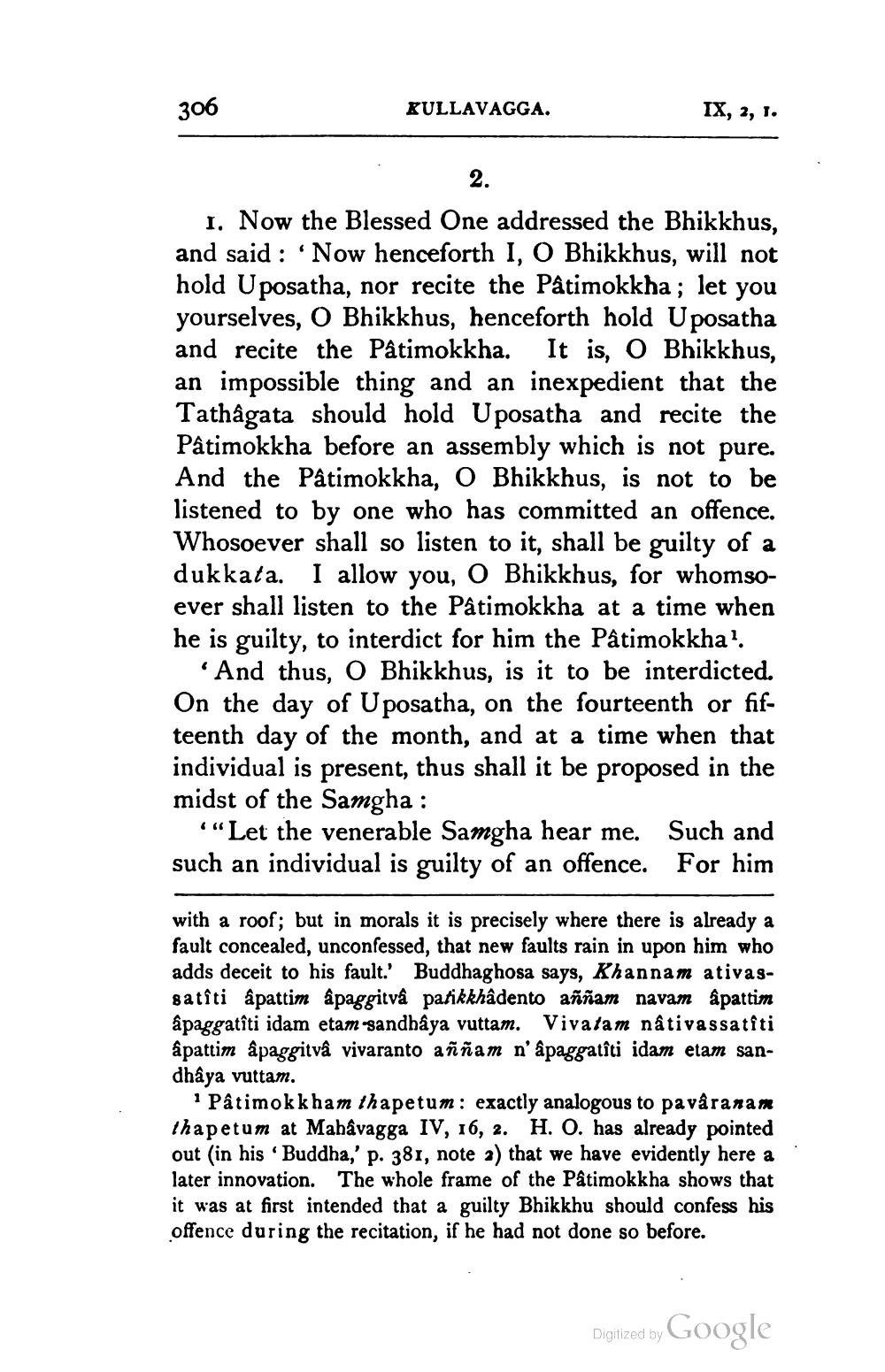________________
306
KULLAVAGGA.
IX, 2, 1.
2.
1. Now the Blessed One addressed the Bhikkhus, and said : ‘Now henceforth I, O Bhikkhus, will not hold Uposatha, nor recite the Pâtimokkha; let you yourselves, O Bhikkhus, henceforth hold U posatha and recite the Pâtimokkha. It is, O Bhikkhus, an impossible thing and an inexpedient that the Tathagata should hold Uposatha and recite the Pâtimokkha before an assembly which is not pure. And the Pâtimokkha, O Bhikkhus, is not to be listened to by one who has committed an offence. Whosoever shall so listen to it, shall be guilty of a dukkata. I allow you, O Bhikkhus, for whomsoever shall listen to the Pâtimokkha at a time when he is guilty, to interdict for him the Pâtimokkha?.
"And thus, O Bhikkhus, is it to be interdicted. On the day of Uposatha, on the fourteenth or fifteenth day of the month, and at a time when that individual is present, thus shall it be proposed in the midst of the Samgha :
""Let the venerable Samgha hear me. Such and such an individual is guilty of an offence. For him
with a roof; but in morals it is precisely where there is already a fault concealed, unconfessed, that new faults rain in upon him who adds deceit to his fault.' Buddhaghosa says, Khannam ativassatiti âpattim &paggitvå patikkhâdento annam navam àpattim âpaggatîti idam etam-sandbâya vuttam. Vivatam nâtivassatîti ápattim âpaggitva vivaranto aññam n' apaggatîti idam etam sandhầya vuttam.
1 Pâtimokk ham thapetum: exactly analogous to pavåranam thapetum at Mahavagga IV, 16, 2. H. O. has already pointed out (in his 'Buddha,' p. 381, note 2) that we have evidently here a later innovation. The whole frame of the Pâtimokkha shows that it was at first intended that a guilty Bhikkhu should confess his offence during the recitation, if he had not done so before.
Digitized by Google




